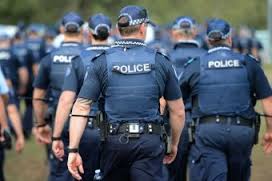From 1 March 2018, men of the WA Police Force will be able to grow beards.
Under the present rules, officers are only allowed to grow beards for religious, cultural or medical reasons and must have their claim supported by “appropriate evidence”.
Commissioner Chris Dawson announced to the Police Union's annual conference that the WA Police Corporate Board had agreed on an acceptable beard policy.
For instance, the beard must be full face with moustache and must be no less than 8mm in thickness and no greater than 20mm.
Goatees, excessive sideburns and small patches below the bottom lip are still banned, and no beard is allowed if the officer is attached to a specialist team that requires use of gas mask.
Moreover, the beards must be grown in their own time when the officers’ are on three weeks leave. This is because the WA Police Force does not want people coming to work unshaven.
The WA Police Union said removing the ban will modernise the Force and bring them into line with other police agencies across Australia.
The union had previously argued that officers should be allowed to grow beards particularly in colder climates around the State.
“Members feel the police force regulations and WA Police policy regarding the wearing of beards is out of date and that it should be changed to reflect the current trends amongst the male members of the community,” said the Lower South West branch.
Five years ago, Victoria Police introduced a beard ban and three years later 16 of the officers challenged the ruling by taking it all the way to the Supreme Court.
The officers argued the ban was unfair for a variety of reasons, including that it reduced their level of attractiveness, while another officer claimed he could not shave due to medical reasons.
The Supreme Court found the ban on beards and long hair is not discriminatory.
Employment lawyer Nicole Young told
ABC Radio Perth that employers are allowed to have a range of rules about how their employees have to look.
"Rules against hair colour, piercing, tattooing — if a business wants to have a rule about how you will look at work, it's usually not discriminatory unless it's based on a religious belief," she said.
HRD contacted the West Australian Police Force for comment.
Related stories:
The problem with employee incentive programs
Disney World accused of discrimination
Lighter side: School fires teacher over a viral photo of his beard

